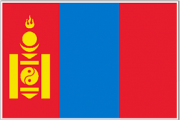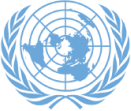SIXTY-NINTH SESSION OF THE UN GENERAL ASSEMBLY
THIRD COMMITTEE
14 October 2014
New York
STATEMENT BY AMBASSADOR OCHIR ENKHTSETSEG
REPRESENTATIVE OF MONGOLIA
/ On agenda ITEM 27 – ADVANCEMENT OF WOMEN /
Madame Chair,
The ongoing 20-year review of the implementation of the Beijing Platform for Action and elaboration of the post-2015 development agenda provide us with a critical opportunity to recommit ourselves to gender equality and women’s empowerment. As the 2014 MDG's report indicates women's status in the labor market has been somewhat improving, yet gender disparity still exists. Women's political participation has considerably increased, yet we all recognize that much remains to be done. Hence, completing the unfinished agenda of MDGs is crucial for our journey ahead.
My delegation strongly supports the inclusion of a stand-alone goal on achieving gender equality and empowering all women and girls among the SDGs along with integration of gender-sensitive targets and indicators into all the relevant goals of the post-2015 development agenda.
Madame Chair,
Mongolia stands strongly committed to the full implementation of the Beijing Declaration and Platform for Action, the outcome of the Twenty-third Special Session of the General Assembly, as well as the Convention on the Elimination of All Forms of Discrimination against Women (CEDAW).
The National Program on Gender Equality envisages specific policy actions designed to combat violence against women, support rural women’s development, promote women’s political participation and economic empowerment while ensuring equal access to technology and other assets. The national program’s implementation is coordinated by the Committee on Gender Equality chaired by Prime Minister, with focal points in all ministries and in 21 aimags (provinces).
The Government of Mongolia is paying special attention to improve maternal health. As a result of the implementation of the national programs, such as “State Policy on Population Development”, “The Third National Program on Reproductive Health”, “The Second Strategy on Maternal Mortality Reduction” and "Maternal and Child Health for 2011-2015", Mongolia is on-track to meet the target of 50 maternal deaths per 100.000 live births by 2015. Within the extensive public education on sexual and reproductive health, 98-99 per cent of men and women of reproductive age being aware of family planning, and 53 per cent of women of reproductive age uses at least one of the modern family planning methods. Antenatal care coverage has expanded significantly to reach 98-99 per cent of all pregnant women, and 99 per cent of all births are assisted by medical personnel. However, we need to improve the quality of service and access to antenatal essential care service in rural areas and raise the awareness of maternal health issues among adolescent and vulnerable groups.
"The Law on the Promotion of Gender Equality", adopted in 2011, has set gender quota for up to 40 percent requirement of positions to be occupied by women in the different echelons of civil service and specifically prohibits gender discrimination in relation to hiring, promotion, wages, and access to education.
The Election Law was approved in 2011 with 20 percent quota for women candidates. As a result of 2012 general elections 11 out of 76 MPs are women making up less than 14.7 percent. Hence, the MDG target of 30 percent of parliamentary seats to be held by women is unlikely to be met by 2015.
Madam Chair,
We fully support the Secretary-General's recommendation in his report (A/69/224) on trafficking in women and girls that there is a need to reinforce efforts and resources in the area of prevention that are focused on addressing the root causes of trafficking. Poverty, unemployment, gender inequality are among the main factors that make people, particularly women and girls, vulnerable to trafficking.
In 2011, the Law on Combating Human Trafficking was adopted in Mongolia and the National Program of Action was also revised. Protection of and support for victims to ensure a rights-based approach and rehabilitation services, including professional training and legal aid have been reinforced along with preventive, awareness-raising efforts.
Development and implementation of bilateral, multilateral and regional agreements are important to effectively address human trafficking. In this respect, we signed the Agreement on Cooperation to Combat Trafficking in Persons with China’s Macao Special Administrative Region and look forward to work closely with the countries in the region and relevant international organizations to prevent and combat trafficking in women and girls.
Thank you for attention.


